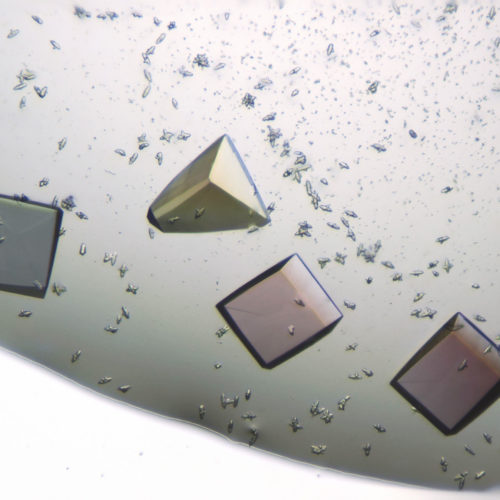For the production of biorenewables, one needs to first deconstruct biomass into its building blocks and then convert them into molecules of high added value and intermediates. At LNBR, we cover all the scientific aspects in this productive chain from biotech solutions to boost agriculture, development of enzymes and microorganisms for biorefinery, process scaling up, to sustainability issues. The heart of our strategy is on the detailed atomic and molecular understanding of these systems using thermodynamic approaches, electron microscopy and ultimately synchrotron radiation.
There are four main thrusts: (i) Genetic Engineering – editing bacteria, yeasts and fungi to rewire, activate and shutdown metabolic pathways or to assimilate information (genes) from other microorganisms or proteins, enabling new functions (such as consuming more than one kind of sugar); (ii) Protein Design – redesign specific parts of proteins or rationally build synthetic chimeric proteins, for example, to improve the efficiency of bioprocesses or to make compatible with the extreme industrial conditions; (iii) Omic Sciences – genome, transcriptome and proteome research dedicated to the elucidation of molecular pathways in bacteria, yeasts, and fungi and in microbial communities; and (iv) Simulation and Modeling – integrated assessment of socioeconomic and environmental impact for biorefineries and monitoring of natural resources associated with biomass production.





